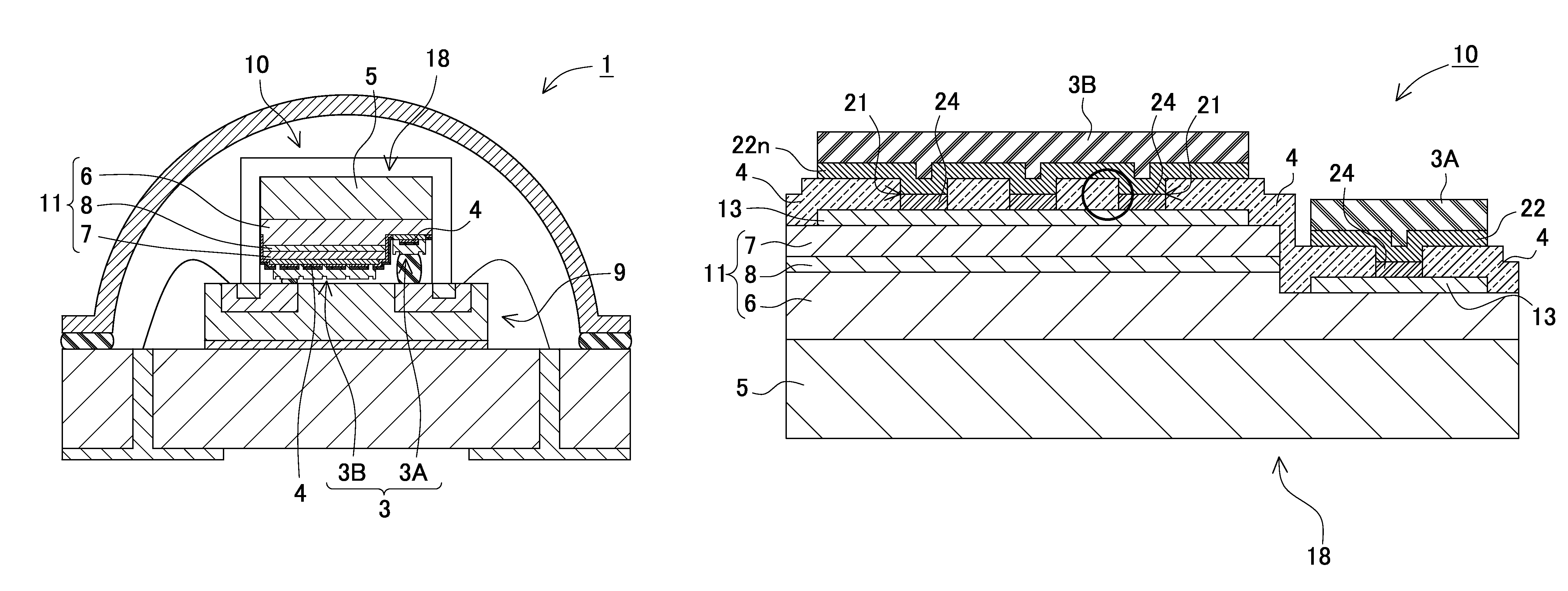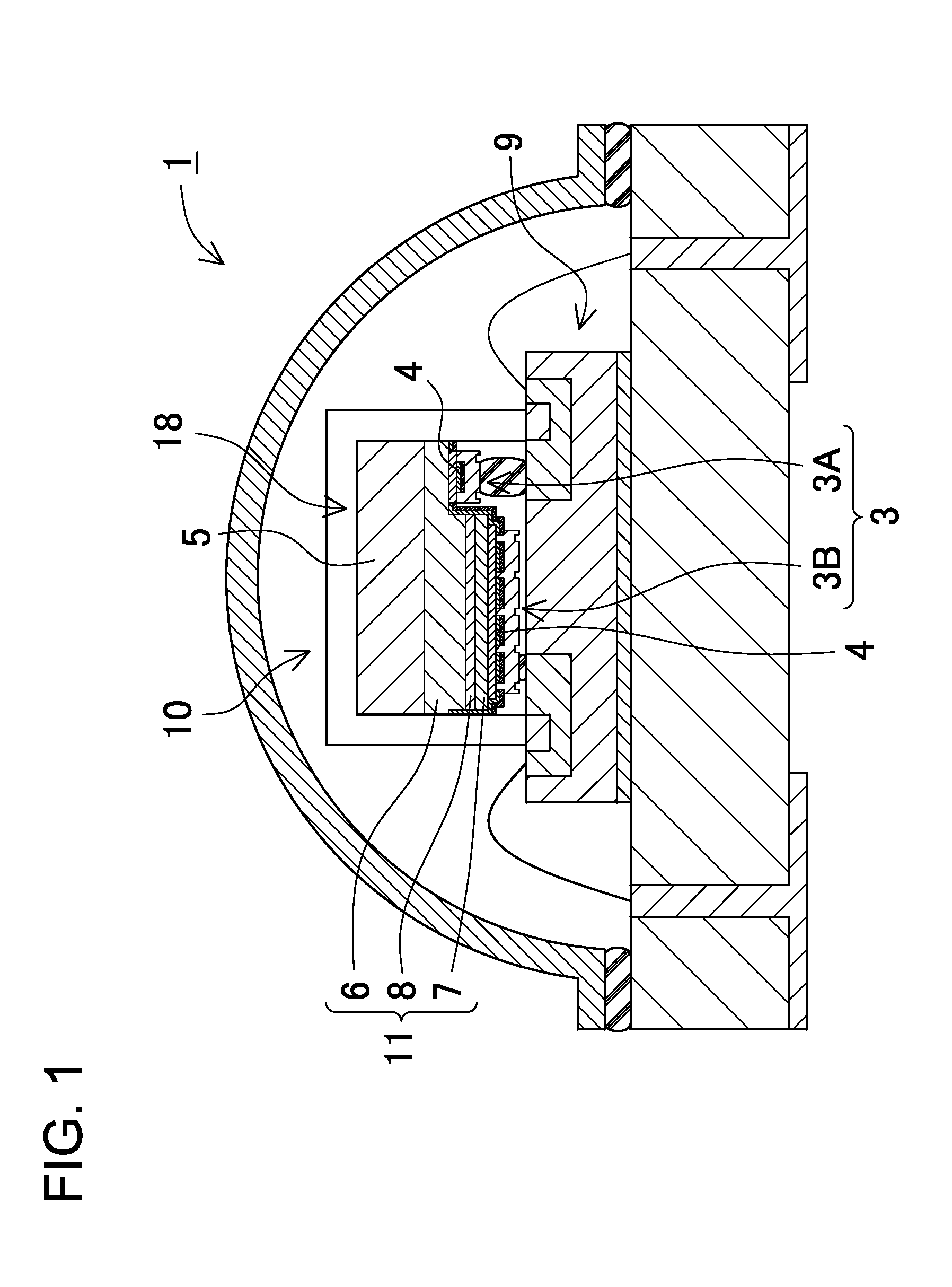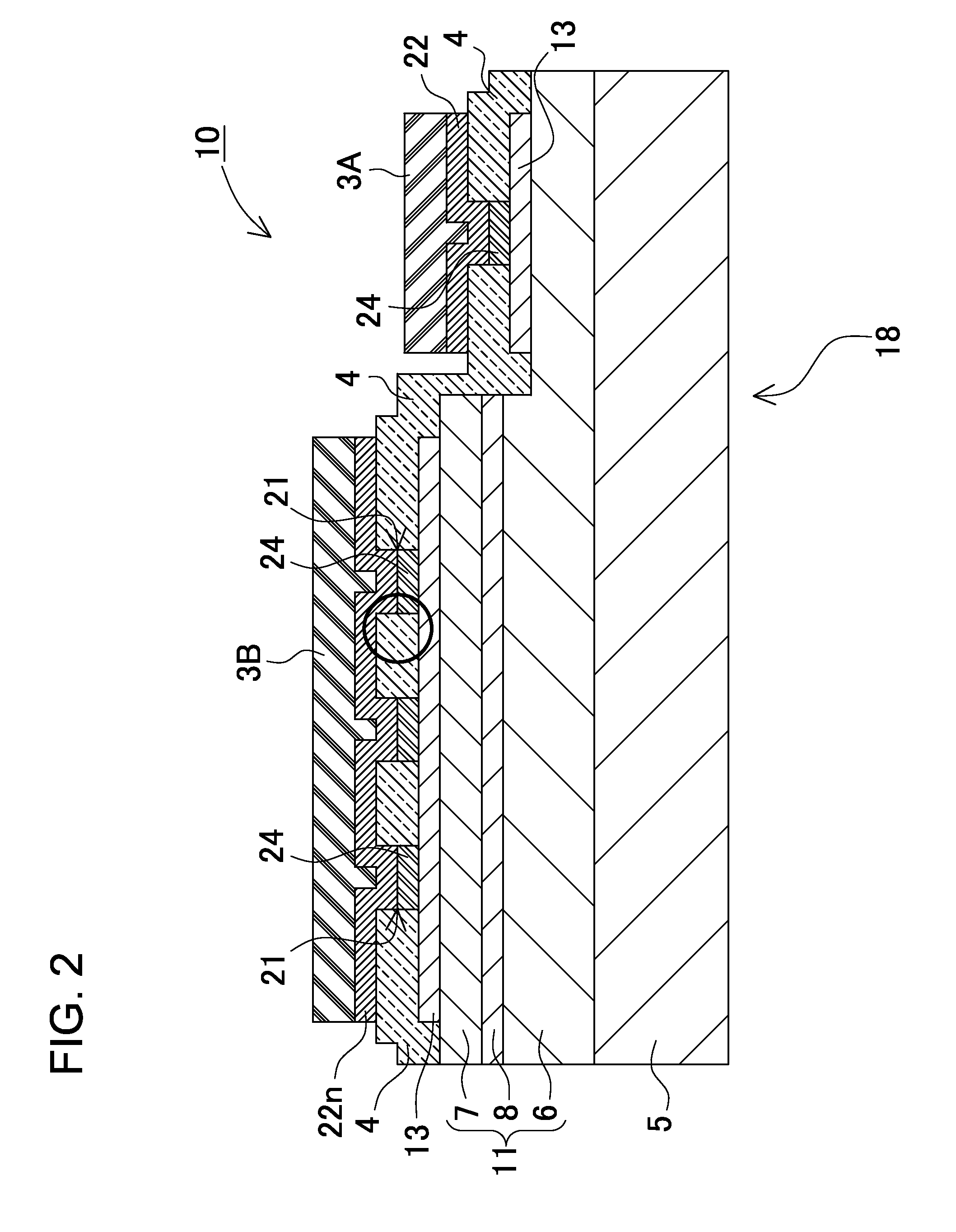Semiconductor light emitting device including metal reflecting layer
a technology of metal reflecting layer, which is applied in the direction of semiconductor devices, basic electric elements, electrical appliances, etc., can solve the problems of ineffective light extraction, non-covered parts that are not covered, and inability to use light effectively, so as to increase the reliability of the nitride group compound semiconductor light emitting device, prevent the deterioration of the metal reflecting layer, and achieve high light output power
- Summary
- Abstract
- Description
- Claims
- Application Information
AI Technical Summary
Benefits of technology
Problems solved by technology
Method used
Image
Examples
first embodiment
[0067]FIG. 1 is a cross-sectional view showing a light emitting apparatus 1 according to a first embodiment of the present invention. This illustrated light emitting apparatus 1 includes a light emitting device 10 of an LED chip as an exemplary nitride semiconductor device. This LED chip is mounted onto a wiring board 9, which is a sort of submount, in a flip-chip mounting manner. The flip-chip mounting manner refers to a mounting manner where a growth substrate 5 serves as a main light extraction surface through which light outgoes. Semiconductor layers are deposited on the growth substrate. The growth substrate 5 is opposed to an electrode formation surface on which an electrode is formed. The flip-chip mounting manner is also referred to as facedown mounting manner. The light emitting device 10 is shown upside down in FIG. 1 for illustrating the flip-chip mounting manner.
[0068]FIG. 2 is a cross-sectional view schematically showing the light emitting device 10 shown in FIG. 1 befo...
second embodiment
[0099]An eutectic-bonding pad electrode can be additionally arranged on the pad electrode. FIGS. 4 to 7 show a light emitting device 10′ according to a second embodiment that includes the eutectic-bonding pad electrode. FIG. 4 is a schematic cross-sectional view showing the light emitting device 10′. FIGS. 5 to 7 show exemplary construction of the light emitting device 10′ according to the second embodiment. FIG. 5 is a plan view showing the light emitting device 10′. FIG. 6A is a cross-sectional view of the light emitting device 10′ shown in FIG. 5 taken along the line VI-VI. FIG. 7 is a cross-sectional view of the light emitting device 10′ shown in FIG. 5 taken along the line VII-VII. The illustrated semiconductor light emitting device 10′ has substantially the same construction as the light emitting device shown in FIG. 2. Components of semiconductor light emitting device 10′ same as those of the light emitting device shown in FIG. 2 are attached with the same reference signs, an...
third embodiment
[0105]The semiconductor light emitting device can have a gap between the pad electrodes, which are provided for external connection. FIG. 9 shows this type of semiconductor light emitting device 10″ according to a third embodiment. The production method of the semiconductor light emitting device according to the third embodiment is now described with reference to a flowchart of FIG. 10, and cross-sectional views of FIGS. 11A to 11E and 12F to 12I. The cross-sectional views show a die for ease of illustration. Illustration of the dividing process is omitted which divides a wafer into chips after wafer processes for the sake of brevity. Main processes can be shown as follows:
Step S1: Epitaxial Growth
Step S2: Exposure of N-Type Layer
Step S3: Formation of ITO Ohmic Electrode
Step S4: Formation of DBR Film on Whole Surface
Step S5: Formation of Resist Mask for Forming Openings
Step S6: DBR Film Dry Etching
Step S7: Formation of Barrier Metal Film
Step S8: Liftoff
Step S7: Formation of Pad Elec...
PUM
 Login to View More
Login to View More Abstract
Description
Claims
Application Information
 Login to View More
Login to View More - R&D
- Intellectual Property
- Life Sciences
- Materials
- Tech Scout
- Unparalleled Data Quality
- Higher Quality Content
- 60% Fewer Hallucinations
Browse by: Latest US Patents, China's latest patents, Technical Efficacy Thesaurus, Application Domain, Technology Topic, Popular Technical Reports.
© 2025 PatSnap. All rights reserved.Legal|Privacy policy|Modern Slavery Act Transparency Statement|Sitemap|About US| Contact US: help@patsnap.com



